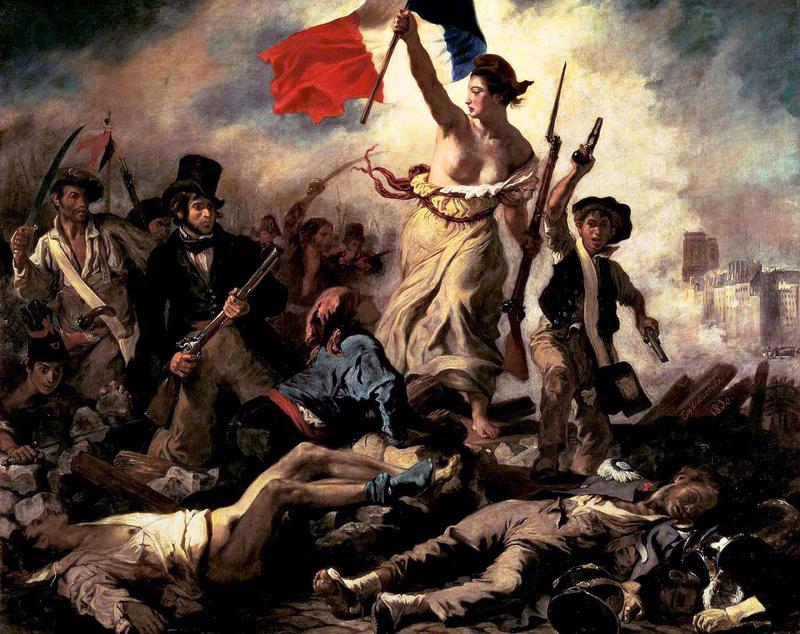
Friday
With July 4th fireworks still ringing in my ears, I share Paul Eluard’s poem “Liberté,” which was written during World War II. Copies were dropped by the British Air Force into parts of Nazi-occupied Europe with the design of rallying the resistance.
Early on during his rise to power, Hitler ordered books to be burned, including works by Kafka, Dostoevsky, Tolstoy, Hemingway, Remarque, Hugo, and Gide. It seems fitting that literature fired back.
In 1995, when as citizen of one of the allied nations I read Walt Whitman’s “Oh Captain, My Captain” during Slovenia’s nationally televised V-E Day celebration, a French woman read “Liberté.” It’s a poem that lends itself naturally to such occasions.
It so happens that Eluard admired Whitman, and “Liberté” is a Whitman-style list. For the French poet, liberty refers not only to political liberty but also to liberty from what William Blake called “the mind-forged manacles”—which is to say, the shackles we internalize. As a surrealist, Eluard takes aim at restrictive customs and structures.
Sometimes Eluard writes “liberté” on the school notebooks that indoctrinate him, sometimes on “the crown of the king” that oppresses him, sometimes on “the whiff of daybreak” that promises a new day. “Liberté” gets written both on the lit lamp that shows us the way forward and the unlit lamp that needs to be awakened. It doesn’t matter that the word will sometimes vanish at the very moment he writes it, as it will when it is written upon “the sands of snow,” “the froth of the cloud,” and “the sweat of the storm.” Such poets don’t put a lot of stock in permanence.
By the final stanzas, where the images are of crumbled hiding places, sunken lighthouses, walls, ennui, bloodless abstractions, and the marches of death, he appears to use “liberté” to save himself from despair. “Liberté” will renew his life.
When he writes, “I was born to know you, /To name you,” he is talking about our deep longing to be free, as well as our equally deep longing to give our longing a name. The yearning to be free reaches deep, especially when we live in troubled times.
Liberté
On my school notebooks
On my desk and on the trees
On the sands of snow
I write your name
On the pages I have read
On all the white pages
Stone, blood, paper or ash
I write your name
On the images of gold
On the weapons of the warriors
On the crown of the king
I write your name
On the jungle and the desert
On the nest and on the brier
On the echo of my childhood
I write your name
On all my scarves of blue
On the moist sunlit swamps
On the living lake of moonlight
I write your name
On the fields, on the horizon
On the birds’ wings
And on the mill of shadows
I write your name
On each whiff of daybreak
On the sea, on the boats
On the demented mountaintop
I write your name
On the froth of the cloud
On the sweat of the storm
On the dense rain and the flat
I write your name
On the flickering figures
On the bells of colors
On the natural truth
I write your name
On the high paths
On the deployed routes
On the crowd-thronged square
I write your name
On the lamp which is lit
On the lamp which isn’t
On my reunited thoughts
I write your name
On a fruit cut in two
Of my mirror and my chamber
On my bed, an empty shell
I write your name
On my dog, greathearted and greedy
On his pricked-up ears
On his blundering paws
I write your name
On the latch of my door
On those familiar objects
On the torrents of a good fire
I write your name
On the harmony of the flesh
On the faces of my friends
On each outstretched hand
I write your name
On the window of surprises
On a pair of expectant lips
In a state far deeper than silence
I write your name
On my crumbled hiding-places
On my sunken lighthouses
On my walls and my ennui
I write your name
On abstraction without desire
On naked solitude
On the marches of death
I write your name
And for the want of a word
I renew my life
For I was born to know you
To name you
Liberty.

